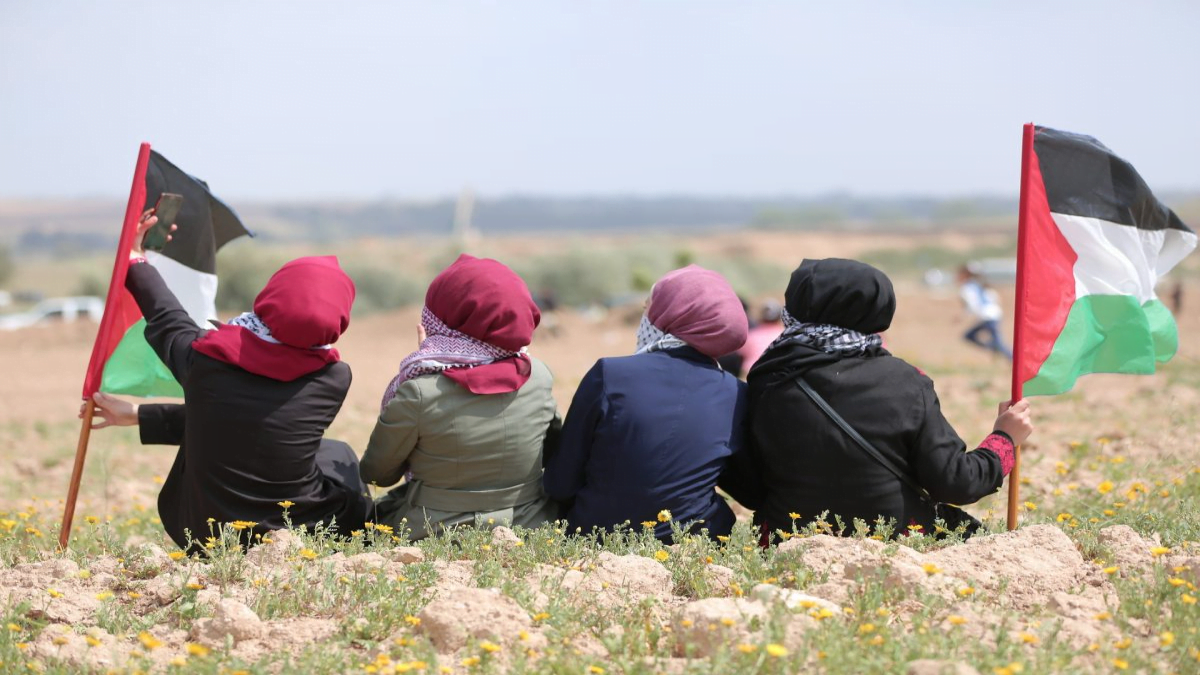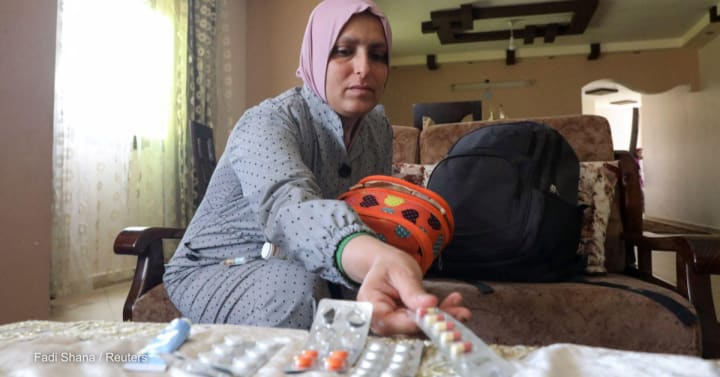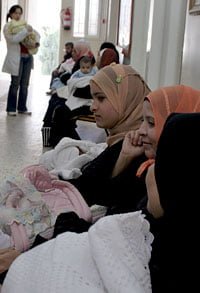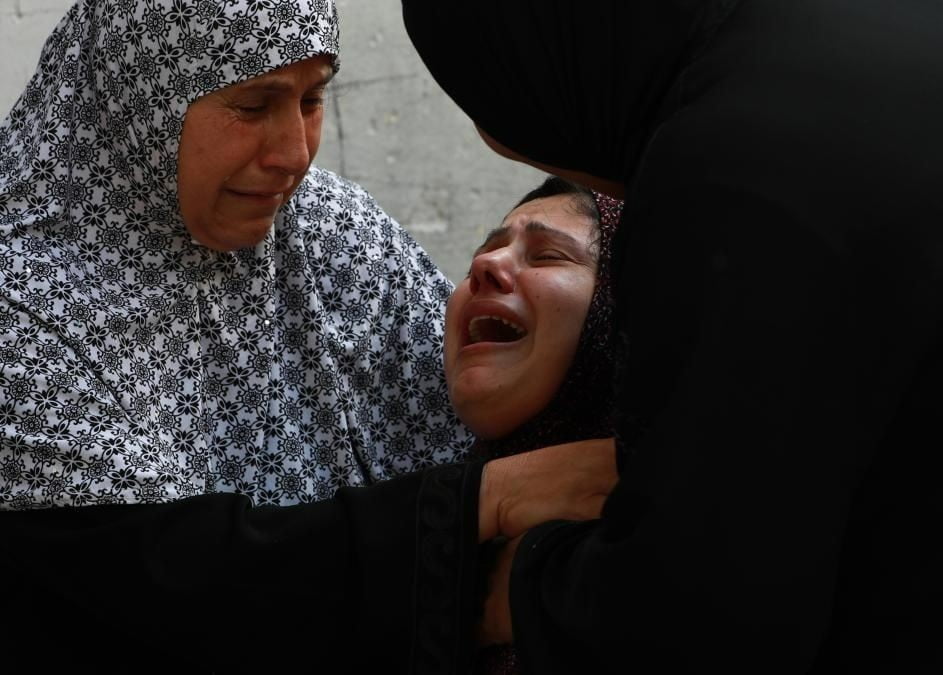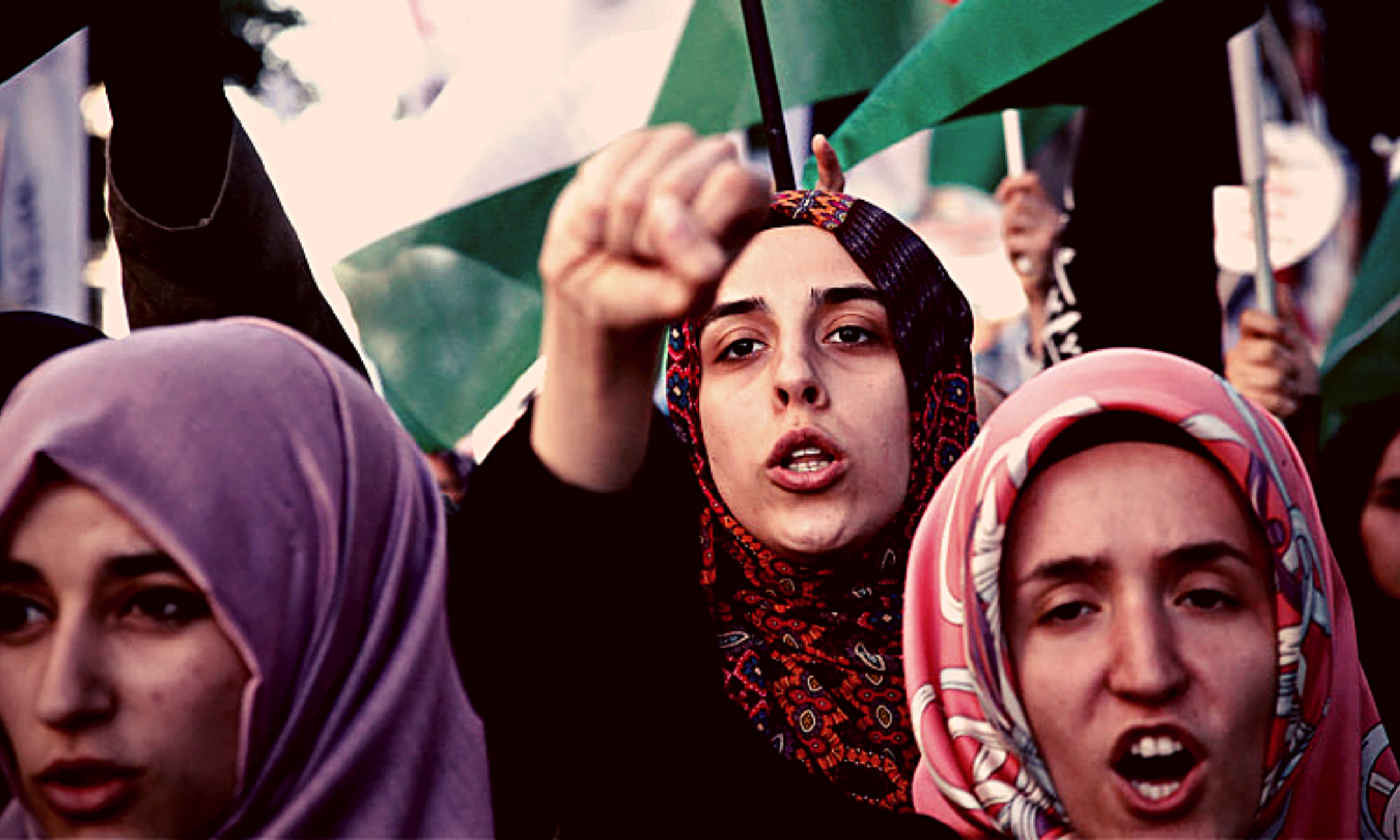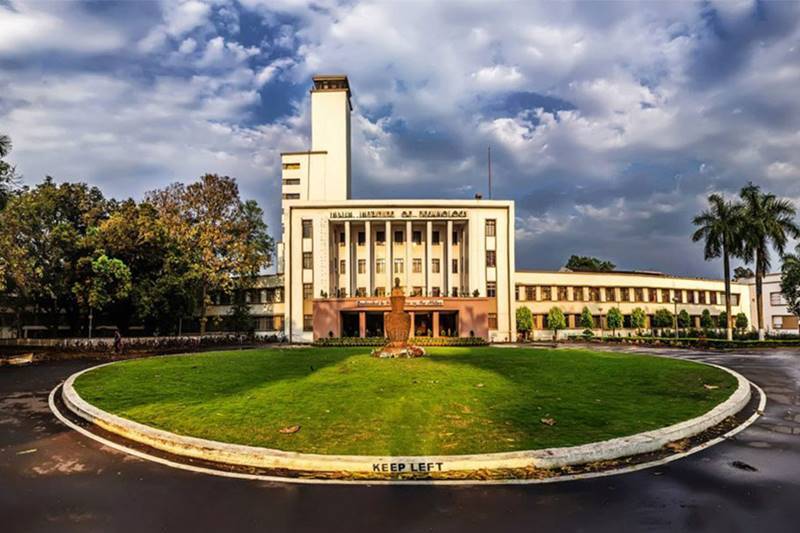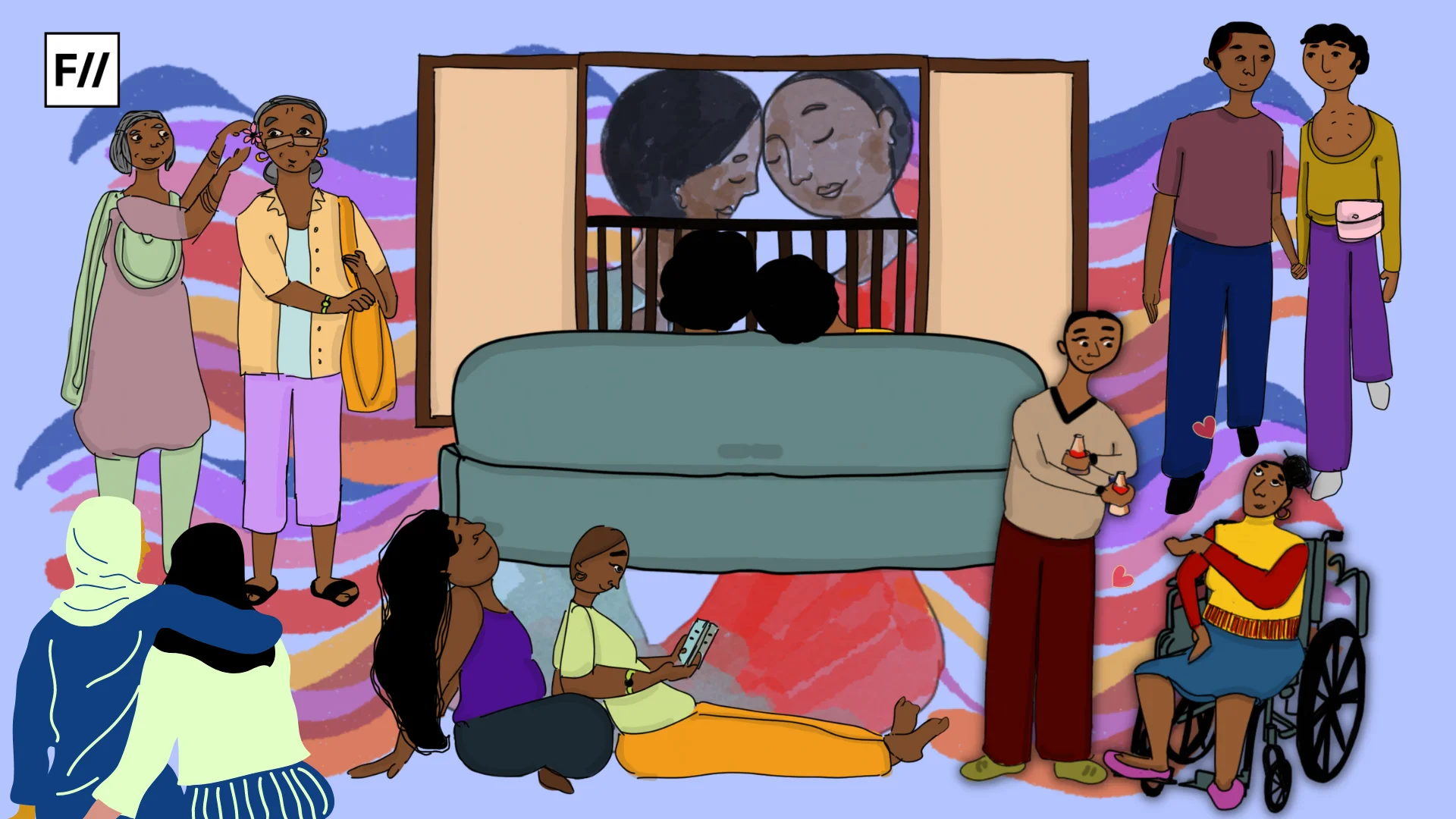The first thing I contemplated about, at the war’s inception, was hoarding sanitary napkins.
Yes, even before food, this Palestinian woman in Gaza thought about stocking up on menstrual products in the war-torn city. She also told Middle East Eye (MEE) that it is a “nightmare” to be on her period during the war. Another woman said her last menses were very disturbing as she was homeless and had been living on her backpack.
There is more
The displacement of as many as 1.7 million (likely more) Palestinians in the Gaza Strip since the beginning of the war (October 7) has inflicted pain on the lives of tons of women in the city. Procuring hygienic period products is one of the dire straits Palestinian women are currently toppling. According to a report published by MEE, women are using tissue paper or donning double underwear as a substitute for sanitary napkins and tampons. Another media organisation reported they are using period-delaying tablets (norethisterone pills) to delay their menstrual cycle.
The tablet is usually prescribed to women who are diagnosed with excessive menstrual bleeding – also known as endometriosis in classical medical terms. As per medical experts, there is a high probability that the tablet might cause side effects such as sporadic bleeding, nausea, and dizziness, however, in war, women do not have “the right to choose”.
Why: let’s dwell deeper
While menstrual pads are currently a “luxury” for Palestinian women, media reports claim period-postponing pills are easily available in a few pharmacy stores as they are less used and are less in demand. However, Israel’s absolute siege, including access to healthcare, has halted medical supplies at apothecary stores in the Gaza Strip.
Additionally, rampant bombing by Israel, ever since the beginning of the war, has made hauling medicinal products from medical depositories to drugstores unimaginable. Yes, it is next to impossible. Does that mean norethisterone tablets is the solution? Okay, but what about mothers?
Mothers: C-section operation without anesthesia in Gaza
‘We have to be very creative in a disaster setting because generally, we have more patients than resources in such situations.’
The words take us back to the losses we endured during the disastrous COVID-19 pandemic when the globe had less access to healthcare resources and was persistently witnessing a bloodbath. The following words come from Lindsey Ryan Martin, Director of Global Disaster Response and Humanitarian Action in Massachusetts, USA. Ryan, according to The Washington Post Report, has also been observing the critical medical situation in Gaza.
Due to displacement to the South, according to statistics (by November 1), more than 50,000 women were pregnant, and 5,500 were expected to give birth in November. A BBC report says a whopping 180 deliveries are expected to happen daily. While fabricated data/news continues to disguise us in the new-age world, credible international sources like Al jazeera claim pregnant Palestinian women in Gaza were compelled to undergo C-section operations without the privilege of “anesthesia”.
Anesthesia is a drug that is usually induced in patients to control pain or ingrain temporary loss of sensation for medical purposes. The drug acts as a catalyst to create numbness in the belly button to the upper part of the legs. In the case of pregnancy, it allows mothers to be awake throughout the process of childbirth and also allows them to feel pressure in second-stage labor pain. ‘There was a shortage of painkillers. The doctors gave painkillers only to those pregnant women who cannot bear the pain at all,’ said a 24-year-old mother who gave birth to her child without access to painkillers. This is just one story.
As per the Palestinian Family Planning and Protection Association, over 37,000 pregnant women in the Gaza Strip will be compelled to childbearing with no access to healthcare and electricity in the upcoming months.
Thousands of pregnant women, in exhaustion, have fled from their homes in north Gaza to the south to safeguard themselves, their family, and their newborns. As per the Palestinian Family Planning and Protection Association, over 37,000 pregnant women in the Gaza Strip will be compelled to childbearing with no access to healthcare and electricity in the upcoming months.
More: Miscarriages and premature births in war-torn Gaza
‘I’m really worried about my child and about witnessing a miscarriage,’ said a young mother who is afraid of losing her child in this bloodbath. Al-Shifa’s – Gaza’s largest hospital’s – medical director, in a report, has claimed that a large number of pregnant women have reportedly suffered from miscarriages and stillbirths due to persistent sound of bombardment.
Additionally, the road blockade in the war-torn city has accelerated the amount of time to reach a hospital, and this further puts a Palestinian mother’s life at dire risk. Reportedly, a medical operation was performed by doctors on a woman after she stood on the road for two hours lurching to reach a hospital in Gaza. However, her life was saved. However, how many women are being saved by the medical staff? We do not know the numbers yet. We only know the number of those who are suffering lamenting, ‘The hospital I decided to visit has been destroyed by air bombing. I have to give birth somewhere.’
No access to toilets in Gaza
About 1.1 million Gazans were asked to evacuate their houses in less than 24 hours when Israel claimed the north is not safe anymore and that people should move to the south as quickly as possible. A report according to The Time, claims access to a toilet was/has become the most critical need for mothers (to be). in areas like Khan Younis. Thousands of people, including women, have to use only one washroom at a time. They are getting prone to infections as well. The report claims people have to wait for almost two hours to use one washroom.
A report by MEE claims that an average of 160 civilians residing in Unrwa schools in Gaza share one bathroom, and there is only one shower unit for 700 Gazans. Medical professionals have said with conviction that an unsanitary milieu, induced due to this war, can lead to vaginal-related diseases and among them, the most common is urinary tract infections (UTI).
Is there privacy? If yes, then where?
Thousands of women, young girls, pregnant women, and young girls who have just witnessed their first period (certainly without sanitary napkins) are taking shelter in ghettos, contaminated UN-run schools, and extremely overpopulated spaces with tons of family members and relatives. There is certainly no room for privacy.
The 15-year-old girl who just hit her period in Gaza does not have access to a safe room to tell her mother or whoever she trusts and seek the help of someone who understands menstruation. The giirl does not have access to the right to acquire the hygienic menstrual cup/napkin and also talk about her period. She is forced to sleep in the same blanket and compelled to use the same toilet that is being used by 160 people.
This begs the question: do Palestinian women and girls not have the right to safe and hygienic healthcare and to privacy?
This begs the question: do Palestinian women and girls not have the right to safe and hygienic healthcare and to privacy?
